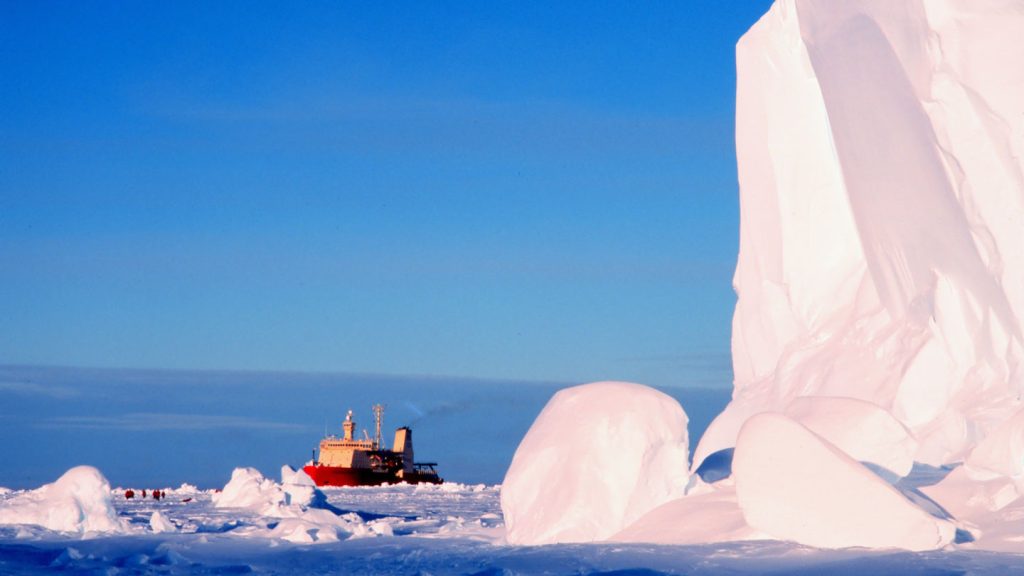Antarctica’s largest ice shelf, the Ross Ice Shelf, which supports major glaciers, appears to be highly sensitive to warming. A recent study suggests that several thousand years ago, the retreat and thinning of the Ross Ice Shelf and the glaciers feeding it were triggered by a rearrangement of ocean currents due to a slight amount of ocean warming.
Ocean currents have historically kept the Ross Ice Shelf stable. But as other parts of Antarctica are losing ice rapidly, the concern remains that the Ross Ice Shelf could eventually melt. The opening of the Ross Ice Shelf would expose the West Antarctic Ice Sheet, potentially leading to drastic rises in sea levels. Currently, the Ross Ice Shelf is safeguarded by a natural oceanic conveyor belt that forms sea ice and prevents warm water from melting the ice shelf.
Researchers have discovered that a minor amount of ocean warming could significantly slow the formation of sea ice in front of the Ross Ice Shelf. This could weaken the cold, salty waterfall mechanism that protects the ice shelf, allowing warmer water to intrude and melt the ice from below. The glaciers behind the Ross Ice Shelf contain enough ice to raise sea levels by approximately 2 meters.
A warming episode in the past led to the retreat of the Ross Ice Shelf, offering a glimpse into a potential scenario in the near future. Recent data indicates that the Antarctic sea ice around the Ross Ice Shelf has been declining, with the cold, salty waterfall slowing. This trend is concerning, as it suggests that the ice shelf is susceptible to rapid changes due to warming, potentially leading to significant sea level rise over the coming centuries.
The findings of the study highlight the delicate balance and vulnerability of the Ross Ice Shelf to even minor changes in ocean temperatures. The potential for a repeat of the past ice shelf retreat poses a significant threat in the face of current climate change. Scientists emphasize the importance of monitoring these changes and understanding the potential consequences for sea level rise and the stability of the Antarctic ice shelves.
As the global climate continues to warm, the resilience of the Ross Ice Shelf and its ability to withstand these changes remains uncertain. With evidence of previous warming episodes and recent observations of declining sea ice, urgent action is needed to mitigate the impacts of climate change on Antarctica’s ice shelves and the resulting consequences for sea level rise and coastal regions around the world.















